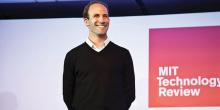|
A panel discussion exploring the role of liberal arts education in technology development Sponsored by the UW Department of Germanics About this event: Scott Hartley, venture capitalist and author of The Fuzzy and the Techie, will lead a panel exploring the role of liberal arts education in technology development. His book presents a contrarian perspective highlighting the centrality and value of the Liberal Arts in today’s technologically driven world. Those from the arts, social sciences, or humanities (the Fuzzies) add immense context, perspective and framing to tools traditionally built by computer scientists and engineers (the Techies). Indeed both perspectives are vital. The panelists bring together diverse perspectives from literature, cultural studies, computer science, human-centered engineering, digital arts, and startups in order to consider the human realities behind big data, artificial intelligence, and robotics, and look at considerations around automation. This discussion comes at a time of rapid technology adoption, and expansion of artificial intelligence, leaving open questions such as – how do we ensure the products we develop serve an inclusive society, how do we prevent biases in AI and ML algorithms, how do we create a workforce open to diverse voices? Panel moderator Scott Hartley is a venture capitalist and startup advisor. He learned the terms fuzzy and techie as a student at Stanford University, where he studied political theory. Yet despite being a fuzzy, he found himself at Google, Facebook, and as a venture capitalist. At Stanford the “fuzzies” major in the humanities or social sciences while the “techies” focus on engineering and computer science. In our new world of big data and algorithms, it is often assumed that it’s the techies who drive the innovation. But in The Fuzzy and the Techie, Hartley counters this assumption. He says that it’s actually the fuzzies—not the techies—who play key roles in identifying issues that need solving and imagining the best solutions for doing so. Perspective on human nature, and the valuable applications of our technology bring critical context to code, and ethics to algorithms. Fuzzies also bring the so-called “soft skills” of creativity and communication that are our very comparative advantage in a machine-led world. Hartley looks inside some of today’s most dynamic startups, reveals breakthrough fuzzy-techie collaborations, and explores how such collaborations are at the center of innovation in business, education, and government. Panelists Pedro Domingos, Department of Computer SciencePedro Domingos is a professor of computer science at theUniversity of Washington and the author of "The Master Algorithm". Heis a winner of the SIGKDD Innovation Award, the highest honor in datascience. He is a Fellow of the Association for the Advancement ofArtificial Intelligence, and has received a Fulbright Scholarship, aSloan Fellowship, the National Science Foundation’s CAREER Award, and numerous best paper awards. His research spans a wide variety oftopics in machine learning, artificial intelligence, and data science,including scaling learning algorithms to big data, maximizing word ofmouth in social networks, unifying logic and probability, and deeplearning.Jason Groves, Department of German Jason Groves is an assistant professor of Germanics at the University of Washington, where he offers courses in German literature, cultural studies, and the environmental humanities. Before coming to the UW he held a two-year postdoctoral fellowship in the Integrated Humanities at Yale University and a residency in San Francisco’s Exploratorium Museum. In addition to recent publications on the topics of ecocriticsm, literature and science studies, and performance studies, he co-edits Feedback, a curated blog in critical and cultural theory hosted by Open Humanities Press. At the UW he also co-organizes a Simpson Center for the Humanities cross-disciplinary research cluster on the topic of the Anthropocene. Additional Panelists TBD Space is limited, so please RSVP. For questions please contact: jagroves@uw.edu |
|
|
MORE |
|
Humanizing Technology: Why the Liberal Arts are at the Center of Innovation
Scott Hartley, Pedro Domingos, Jason Groves
Denny 359
